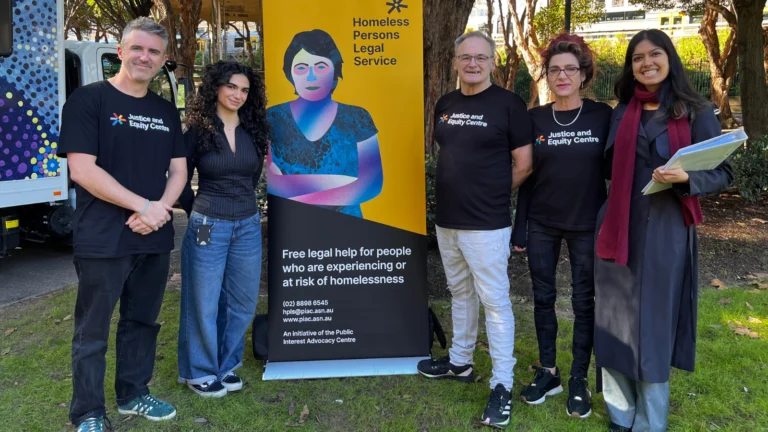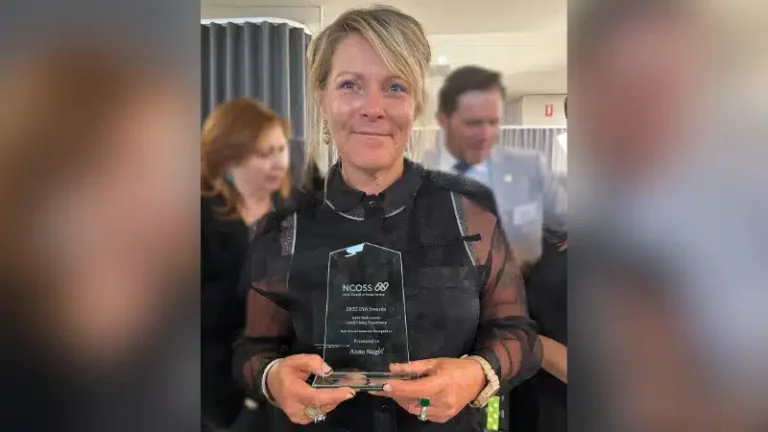By PIAC CEO, Jonathon Hunyor
‘How good is Australia?’ was, of course, meant as a rhetorical question. But, with the climate crisis now all-too-real, we may be about to find out.
Because make no mistake – in this ‘new normal’, we are going to be tested. Our values and our institutions will come under extreme pressure.
The disruptive impacts of climate change will only continue to escalate. They will be both widespread and deep. This includes direct environmental impacts – fire, drought, flood, heatwaves, storms, the spread of disease. It also includes the resulting social and economic impacts of food, water and resource insecurity; mass displacement and climate-driven migration; and the rapid transformation of industries and the economy.
The negative effects of these changes will be disproportionately felt by groups who are already disadvantaged, including Aboriginal and Torres Strait Islander people, people living in poverty, people with disability, people living in remote communities and those experiencing homelessness.
These groups will bear the brunt of a changed environment. Consider the impact of rising sea levels on Torres Strait Islander communities, the ability of people in remote (and not-so-remote) communities to access clean drinking water, or the effect of hazardous smoke haze on people experiencing homelessness.
People facing disadvantage may also be the least able to adapt and mitigate impact. As many households move to take up solar power, will this leave those in social housing (and renters) – people with no control over their infrastructure – relying on the ageing infrastructure of coal-fired power and paying more? With more prevalent extreme weather events, will insurance be available and affordable for households that are only just making ends meet?
As our economy transitions to radically reduce our carbon emissions (as it will have to do quickly), how will we make sure jobs will be based in towns that have previously relied on carbon-intensive industries like coal mines? Or will the new jobs be taken up by fly-in, fly-out workers? When it comes to the opportunities that may arise, we need to ensure the benefits are equitably shared.
Our recent record shows we should be concerned about how we will handle the challenge of ‘climate refugees’. The threat to our Pacific neighbours looms ever-larger as rising seas threaten their existence, and climate change will only continue to grow as a ‘push factor’ for international migration generally. But we will also need to consider internal displacement. The current fires are just a taste of how disruptive climate change will be to our own populations and the viability of communities.
The pace and scale of change, along with increasing competition for scarce resources, will test our commitment to fairness, equality, human rights and ultimately the rule of law like never before. The fear and uncertainty caused by deep disruption may mean people are more willing to compromise their rights (and those of others) for the promise of security. We need to ensure that our democratic institutions are robust enough to resist this pressure.
Australia relies on a patchwork of laws to protect our rights. It’s far from clear that it will be up to the task. Our existing rights protections have already been shown wanting on issues like press freedom and religious discrimination. The right to protest and the ability of charities and environmental groups to engage in advocacy have also been under threat. Our lack of a national Human Rights Act is an obvious weakness. When we look up from the urgent needs of those in crisis to plan for our future, these issues must be part of the work.
Climate change is a social justice issue. We’ve seen some of the very best of our community in its response to the devastation of these fires: generosity, bravery, determination and compassion. As we grapple with the reality of adapting to climate change, we will need all this and more to ensure nobody is left behind.

